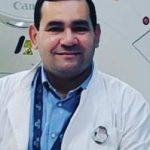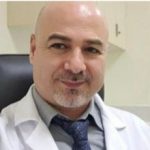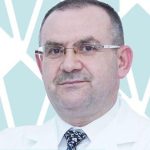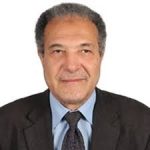Event Date
February 26-27, 2026
Venue
Dubai, United Arab Emirates
– Previous Conference Performers / Professionals From Around The Globe –
Media Partners/Collaborator
A huge thanks to all our amazing partners. We couldn’t have a conference without you!



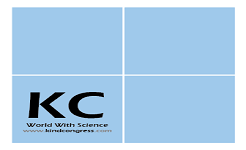
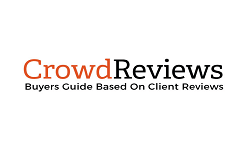


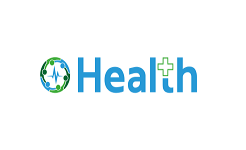


Sponsors/Exhibitors
A huge thanks to all our amazing partners. We couldn’t have a conference without you!


Breast Cancer Congress 2025
09th World Congress on Breast Cancer & Radiology Treatment
Date: February 26-27, 2026
Venue: Dubai, United Arab Emirates
The 09th World Congress on Breast Cancer & Radiology Treatment is a premier international event bringing together oncologists, radiologists, researchers, healthcare professionals, and industry leaders from around the world. Scheduled for February 26-27, 2026, in the dynamic city of Dubai, this congress serves as a vital platform for sharing the latest research, innovations, and best practices in breast cancer diagnosis, treatment, and radiological advancements.
With a focus on multidisciplinary collaboration, the conference will cover a wide range of topics including early detection techniques, personalized medicine, radiological imaging technologies, minimally invasive therapies, and survivorship care. Attendees will benefit from keynote lectures, expert panel discussions, case studies, and interactive sessions designed to foster knowledge exchange and collaboration.
This event is an exceptional opportunity to network with global experts, explore cutting-edge technologies, and contribute to shaping the future of breast cancer care.
Theme : Empowerment in Pink: Uniting Against Breast Cancer
This interdisciplinary congress offers a diverse range of tracks to explore, providing a unique opportunity for professionals from both industry and academia to come together, establish connections, and advance scientific understanding. We extend a warm invitation to all stakeholders to participate in making this congress a resounding success.
The breast cancer congress 2025 Congress is among the world’s largest gatherings focused on breast cancer and radiology treatment. Attendees will include radiologists, radiation oncologists, therapists, medical oncologists, breast care nurses, researchers, educators, administrators, policymakers, and students. This event promises to be an enriching experience, fostering collaboration and learning.
We are privileged to host esteemed keynote speakers from across the globe, as well as numerous concurrent oral and poster presentations showcasing cutting-edge research and advancements in breast cancer therapies. Our objectives encompass providing a platform for education, collaboration, and innovation, facilitating discussions on pertinent issues, updating the community on recent developments, integrating new information into practice, and nurturing academic skills among young specialists.
Who should attend? Breast cancer surgeons, pathologists, radiation oncologists, therapists, nurses, reconstructive surgeons, healthcare professionals, faculty, radiologists, surgeons, and anyone passionate about contributing to the fight against breast cancer.
Why attend? This congress offers a prime opportunity to learn, network, and contribute to the global effort against breast cancer. Engage with experts, discover the latest advancements, and gain recognition in the field. Join us for two days of insightful discussions, renowned speakers, and invaluable connections.
Who Should Attend?
The breast cancer congress 2025 is a unique forum that brings together globally recognized academic researchers, public health experts, scientists, doctors, academic researchers, industry specialists, scholars in the fields of Oncology, Hematology, Surgery, Nursing, Radiology, Pediatrics, Physicians, Advocacy, and more. It serves as a platform for discussions on the current state of research and development in these areas.
Target Audience:
- Doctors
- Oncologists
- Directors
- Cancer Surgeons
- Physicians
- Oncology Nurses & Nurse Practitioners
- Oncology Associations and Societies
- Business Professionals
- Medical colleges and universities
- Professors
- Researchers & Scientists
- Anesthesiologists
- Medicine Experts
- Manufacturing Nano Medical Devices Companies
Why Should You Attend?
The organizing team has gathered distinguished speakers who will cover the latest advances in the field, ensuring diversity in every aspect. The conference offers exclusive B2B meetings, interactive sessions, panel discussions, keynote sessions, poster presentations, oral presentations, workshops, exhibitions, and more.
Benefits of breast cancer congress 2025 :
International Speaker Certification
Hard copy of Conference Souvenir, ID card, and certificate.
All accepted abstracts published in supported journals and Conference Book Proceeding
Opportunity to conduct a workshop with your team members
Networking with Keynote Speakers, OCM, and Eminent personalities for the future course of work
Opportunity to chair a session
Individual Speaker Page created for more visibility of your scientific research
Significant benefits on group registration and much more.
Scope & Importance:
breast cancer congress 2025 and Oncology Conference bring together world-class educators, scientists, and oncologists to discuss diverse strategies for cancer treatment, chemotherapy, and radiology. This event serves as the best platform for oncologists, hematologists, research scholars, and students working in the field to exchange knowledge related to oncology research. The international event aims to comprehend the underlying biological processes that enhance effectiveness, precision, survivability, and quality of life.
Overview of breast cancer congress 2025
The exploration of innovative ideas surrounding cancer has sparked extensive research globally. Despite the substantial efforts of numerous researchers and scientists dedicated to cancer research, a definitive solution remains elusive. The Breast Cancer 2025 will address the realms of cancer prevention, diagnosis, and treatment, particularly focusing on organ-related cancers and their innovative approaches. Over two days, the conference will facilitate discussions on strategies related to cancer management, encouraging the exchange of ideas on a global scale. Key topics include the relevance of cancer to other diseases, advances in cancer research and treatment, cancer causes and risk factors, cancer prevention vaccines, medical imaging for cancer, cancer R&D market analysis, cancer screening and diagnosis, oncolytic virus and cancer, cancer nutrition and metabolism, microRNA and cancer, managing cancer care and patient support, radiology and imaging technologies, DNA damage, mutation and cancer, clinical and medical case reports, cancer pathology and genetics, surgical and clinical oncology, cancer nanotechnology, organ-specific cancer, cancer epidemiology, and SNP and cancer.
Who and Why?
The breast cancer congress 2025 Conference is a gathering of specialists from various domains to discuss the future of oncology and cancer in today’s world, with a focus on thriving and surviving for better health. The conference welcomes directors, specialists, investigators, post-doctoral fellows, research and diagnostic laboratories, clinical fellows, students, biomedical research companies, healthcare institutions, market research and consulting firms, pharmaceutical companies, and all other interested participants seeking to enhance and update their knowledge in the field.
Conference Highlights
- Fields of Oncology
- Types of Oncology
- Solid tumour
- Neurosurgical Oncology
- Nursing Oncology
- Medical & Radiation Oncology
- Neuro Oncology
- Brain Tumour
- Cancer Cell Biology and genetics
- Cancer Biomarkers
- Cancer metabolomics
- Organ-Defined Cancers
- Cancer: Psychological Aspects
- Lifestyle Changes to Improve Your Cancer Care
- Cancer Epigenetics and Oncogenomics
- Cancer Screening and Diagnostics
- Cancer Vaccines
- Clinical Trials in Cancer Treatment
- Innovations in Cancer Research and Oncology
- Cancer Stem Cell
- Oncology Research
- Oncology Research Categories
- Stem Cells
- Bio-markers of Cancer Stem Cells
- Immunology
- Cancer Stem Cell Treatments
- Types of Cancer
- Nanotechnology in Cancer
- Cancer Stages
- Cancer Causes
- Cancer Treatment
- Cancer Prevention
- Clinical research and trials in stem cells and cancer
- MicroRNAs and cancer
Sessions and Tracks
Track 1: Breast Cancer
Breast cancer originates in the breast tissue, commonly starting in the cells lining the milk ducts. While predominantly affecting women, men can also be afflicted. It ranks as the most common invasive cancer among women globally. Tumors formed by these cells may be detected through x-rays or palpable lumps. If these tumors infiltrate surrounding tissues or spread to distant areas, they become malignant. Although breast cancer can arise from various parts of the breast, the milk ducts and glands that produce breast milk are primary sites.
Track 2: Breast Cancer Staging
Breast cancer staging determines the extent of cancer in the body, crucial for treatment decisions involving chemotherapy, hormone therapy, and medication. Both medical and pathologic staging systems are employed. Pathologic staging, determined through tissue examination during surgery, offers insights into cancer’s spread. In cases where surgery isn’t feasible, clinical staging is utilized, often complemented by imaging tests like x-rays, CT scans, MRIs, ultrasounds, and PET scans. The TNM system assigns a letter or number to describe the tumor, node, and metastases.
Track 3: Breast Cancer Detection, Prevention, and Diagnosis
Early detection through screening methods is key, particularly for individuals with a family history of breast cancer. Screening methods include medical breast examinations, mammography, and other imaging techniques. X-rays, known as mammograms, are employed for close observation. Detection of lumps or other signs often prompts mammogram usage.
Track 4: Breast Cancer Surgery
Breast surgery is a common aspect of breast cancer treatment for many women. Procedures range from cancer cell removal, including breast-conserving surgery and mastectomy, to assessing cancer spread through biopsy or lymph node dissection. Breast reconstruction may also follow cancer removal to restore breast shape. Surgery may entail side effects.
Track 5: Radiology
Radiologists specialize in diagnosing and treating injuries and diseases using medical imaging procedures such as X-rays, CT scans, MRIs, ultrasound, and PET scans. Nurses play a crucial role in pre- and post-imaging care, administering medications, monitoring vital signs, and supervising sedated patients.
Track 6: Male Breast Cancer Research
Although men have less breast tissue, they can still develop breast cancer. Awareness of this fact is crucial, as male breast cancer often goes undetected and untreated due to lack of awareness. Risk factors include family history of breast cancer, radiation exposure to the chest, and conditions like Klinefelter’s syndrome. Symptoms in men mirror those in women, highlighting the importance of awareness campaigns.
Track 7: Breast Cancer and Cell Biology
Breast cancer cells are highly complex, posing challenges for treatment. Understanding their diverse phenotypes and apoptotic characteristics is essential for effective therapy. Membrane transporters play a significant role in multidrug resistance, affecting drug efficacy. Genetic changes in growth factors can lead to abnormalities, impacting breast growth regulation. The host’s immune system also plays a crucial role in breast cancer progression.
Track 8: Breast Cancer and Immunology
Immunotherapy enhances clinical treatment outcomes in breast cancer patients by directly targeting tumor cells while minimizing side effects. Targeted treatments aim to improve therapeutic efficacy, reducing adverse effects associated with immunotherapy.
Track 9: Breast Cancer Nursing
Nurses play a vital role in supporting breast cancer patients both physically and emotionally. They provide education on risk factors and coping mechanisms, impacting early detection and treatment outcomes. Nurses serve as advocates for women with breast cancer, contributing to comprehensive care and improved quality of life.
Track 10: Breast Cancer Management
Breast cancer management involves tailored approaches based on individual characteristics, preferences, and health status. Treatment options include surgery, radiotherapy, chemotherapy, endocrine therapy, and targeted therapy. Holistic approaches address physical, emotional, and identity aspects of the disease, including breast reconstruction options and lifestyle modifications to reduce risk factors.
Track 11: Epidemiology of Breast Cancer and Risk Factors
Breast cancer incidence rises significantly with age, particularly before age 50. Risk factors include genetic mutations like BRCA1 and BRCA2, as well as lifesyle factors such as smoking, alcohol consumption, obesity, and physical inactivity. Environmental exposures, hormonal factors, and reproductive history also influence breast cancer risk.
Track 12: Inflammatory Breast Cancer
Inflammatory breast cancer is an aggressive form of breast cancer characterized by rapid swelling, skin changes, itching, and nipple retraction. Diagnosis typically involves biopsy confirmation and imaging tests like ultrasound. Inflammatory breast cancers are often diagnosed at later stages and may require intensive treatment approaches.
Track 13: Mammography
Mammography is a critical tool for early breast cancer detection, even in asymptomatic individuals. Screening mammograms involve multiple x-ray images of each breast to detect abnormalities, including microcalcifications indicative of breast cancer. Diagnostic mammograms provide detailed evaluation of detected abnormalities, though controversies exist regarding false-positive results and radiation exposure.
Track 14: Diet and Lifestyle Effects on Breast Cancer
Maintaining a healthy diet, weight, and lifestyle can reduce breast cancer risk. Factors such as smoking, alcohol consumption, and hormone replacement therapy increase risk, while physical activity, breastfeeding, and plant-based diets reduce risk. Early pregnancy and childbirth also lower breast cancer risk compared to delayed childbirth.
Track 15: Breast Cancer Risk
Breast cancer risk is influenced by a combination of factors, including age, genetic mutations, and lifestyle choices. Aging is a primary risk factor, with most cases occurring in women aged 50 and older. Genetic mutations like BRCA1 and BRCA2 significantly increase risk, as do lifestyle factors such as smoking and obesity.
Track 16: Breast Cancer Clinical Trials
Clinical trials play a pivotal role in advancing breast cancer treatment by testing the safety and efficacy of new therapies and treatment combinations. These trials also explore aspects of care including risk reduction, diagnosis, and screening. Volunteers in clinical trials contribute to expanding knowledge and improving outcomes for breast cancer patients.
Track 17: Case Studies
Case studies offer in-depth investigations into real-life scenarios, providing valuable insights into underlying principles and phenomena. They often focus on individual patients, groups, or events to explore causal factors and outcomes. Through case studies, researchers and clinicians gain understanding and develop strategies to address challenges in breast cancer diagnosis, treatment, and care.
Market Analysis
The breast cancer congress 2025 Therapeutics Market witnessed a remarkable growth, surpassing USD 25.5 billion in 2021, and is projected to achieve a steady Compound Annual Growth Rate (CAGR) of approximately 8% from 2022 to 2028. This surge is primarily fueled by the escalating incidence of breast cancer worldwide. According to the World Health Organization‘s International Agency for Research on Cancer (IARC), breast cancer accounted for about 11.7% of the total cancer cases globally in 2020, reaching 2,261,419 cases.
Breast cancer therapeutics encompass various treatment modalities such as targeted therapy, chemotherapy, hormonal therapy, and other interventions aimed at halting the proliferation of cancerous cells by targeting specific proteins or DNA. The introduction of breast cancer awareness and screening programs by governmental bodies is poised to bolster market dynamics significantly.
These initiatives seek to mitigate mortality rates associated with breast cancer by emphasizing early detection and intervention. Early diagnosis dramatically enhances treatment efficacy, with more than 90% survival rates achievable, especially when the disease is identified in its initial stages. Consequently, numerous local government agencies administer breast cancer screening programs to promote timely detection across various countries.
Furthermore, public organizations spearhead breast cancer awareness campaigns to educate individuals about the disease and available therapeutics. For instance, the National Breast Cancer Foundation‘s “Breast Cancer Awareness Month” campaign in October aims to raise awareness about breast cancer’s impact. Such endeavors are anticipated to empower diagnosed breast cancer patients to opt for optimal therapeutics, thereby bolstering survival rates.
In the United States, the breast cancer therapeutics market is poised to exceed USD 15.8 billion by 2028, driven by factors like high incidence rates, a steadily growing disease burden, and the presence of major market players. According to statistics from Breast Cancer Organizations, over 3.8 million American women are affected by breast cancer as of January 2022. Additionally, around 30% of newly diagnosed cancers among women in 2022 are expected to be breast cancer cases.
With 253,465 reported cases of breast cancer in the U.S. according to Globolcan 2020, the country grapples with a significant disease burden and mortality rates. This scenario is likely to spur demand for breast cancer therapeutics. Moreover, the favorable reimbursement landscape and the presence of key market players are anticipated to further propel market growth in the U.S. in the forthcoming years.
The Breast Cancer Therapeutics Market witnessed a remarkable growth, surpassing USD 25.5 billion in 2021, and is projected to achieve a steady Compound Annual Growth Rate (CAGR) of approximately 8% from 2022 to 2028. This surge is primarily fueled by the escalating incidence of breast cancer worldwide. According to the World Health Organization’s International Agency for Research on Cancer (IARC), breast cancer accounted for about 11.7% of the total cancer cases globally in 2020, reaching 2,261,419 cases.
Breast cancer therapeutics encompass various treatment modalities such as targeted therapy, chemotherapy, hormonal therapy, and other interventions aimed at halting the proliferation of cancerous cells by targeting specific proteins or DNA. The introduction of breast cancer awareness and screening programs by governmental bodies is poised to bolster market dynamics significantly.
These initiatives seek to mitigate mortality rates associated with breast cancer by emphasizing early detection and intervention. Early diagnosis dramatically enhances treatment efficacy, with more than 90% survival rates achievable, especially when the disease is identified in its initial stages. Consequently, numerous local government agencies administer breast cancer screening programs to promote timely detection across various countries.
Furthermore, public organizations spearhead breast cancer awareness campaigns to educate individuals about the disease and available therapeutics. For instance, the National Breast Cancer Foundation’s “Breast Cancer Awareness Month” campaign in October aims to raise awareness about breast cancer’s impact. Such endeavors are anticipated to empower diagnosed breast cancer patients to opt for optimal therapeutics, thereby bolstering survival rates.
In the United States, the breast cancer therapeutics market is poised to exceed USD 15.8 billion by 2028, driven by factors like high incidence rates, a steadily growing disease burden, and the presence of major market players. According to statistics from Breast Cancer Organizations, over 3.8 million American women are affected by breast cancer as of January 2022. Additionally, around 30% of newly diagnosed cancers among women in 2022 are expected to be breast cancer cases.
With 253,465 reported cases of breast cancer in the U.S. according to Globolcan 2020, the country grapples with a significant disease burden and mortality rates. This scenario is likely to spur demand for breast cancer therapeutics. Moreover, the favorable reimbursement landscape and the presence of key market players are anticipated to further propel market growth in the U.S. in the forthcoming years.
The Breast Cancer Therapeutics Market witnessed a remarkable growth, surpassing USD 25.5 billion in 2021, and is projected to achieve a steady Compound Annual Growth Rate (CAGR) of approximately 8% from 2022 to 2028. This surge is primarily fueled by the escalating incidence of breast cancer worldwide. According to the World Health Organization‘s International Agency for Research on Cancer (IARC), breast cancer accounted for about 11.7% of the total cancer cases globally in 2020, reaching 2,261,419 cases.
Breast cancer therapeutics encompass various treatment modalities such as targeted therapy, chemotherapy, hormonal therapy, and other interventions aimed at halting the proliferation of cancerous cells by targeting specific proteins or DNA. The introduction of breast cancer awareness and screening programs by governmental bodies is poised to bolster market dynamics significantly.
These initiatives seek to mitigate mortality rates associated with breast cancer by emphasizing early detection and intervention. Early diagnosis dramatically enhances treatment efficacy, with more than 90% survival rates achievable, especially when the disease is identified in its initial stages. Consequently, numerous local government agencies administer breast cancer screening programs to promote timely detection across various countries.
Furthermore, public organizations spearhead breast cancer awareness campaigns to educate individuals about the disease and available therapeutics. For instance, the National Breast Cancer Foundation’s “Breast Cancer Awareness Month” campaign in October aims to raise awareness about breast cancer’s impact. Such endeavors are anticipated to empower diagnosed breast cancer patients to opt for optimal therapeutics, thereby bolstering survival rates.
In the United States, the breast cancer therapeutics market is poised to exceed USD 15.8 billion by 2028, driven by factors like high incidence rates, a steadily growing disease burden, and the presence of major market players. According to statistics from Breast Cancer Organizations, over 3.8 million American women are affected by breast cancer as of January 2022. Additionally, around 30% of newly diagnosed cancers among women in 2022 are expected to be breast cancer cases.
With 253,465 reported cases of breast cancer in the U.S. according to Globolcan 2020, the country grapples with a significant disease burden and mortality rates. This scenario is likely to spur demand for breast cancer therapeutics. Moreover, the favorable reimbursement landscape and the presence of key market players are anticipated to further propel market growth in the U.S. in the forthcoming years.
Key Topics
-
Breast Cancer Awareness
-
Breast Cancer Biology
-
Breast Cancer Causes
-
Breast Cancer Clinics
-
Breast Cancer Daignosis
-
Breast Cancer Diagnosis & Early Signs
-
Breast Cancer During Pregnancy
-
Breast Cancer Glossary
-
Breast Cancer Health Aspects And Complications
-
Breast Cancer Hormonal Therapy
-
Breast Cancer Hospitals
-
Breast Cancer Immune Tolerance
-
Breast Cancer Immunology & Immunotherpay
-
Breast Cancer In Young Women
-
Breast Cancer Local Treatment Options
-
Breast Cancer Lumpectomy
-
Breast Cancer Lumps
-
Breast Cancer Pain Q & A
-
Breast Cancer Pathology
-
Breast Cancer Pharmacology
-
Breast Cancer Prevention
-
Breast Cancer Protecting Fertility
-
Breast Cancer Quiz Whats Your Risk
-
Breast Cancer Radiation Therapy
-
Breast Cancer Recurrence
-
Breast Cancer Research
-
Breast Cancer Resources
-
Breast Cancer Risk
-
Breast Cancer Risk Factors
-
Breast Cancer Screening
-
Breast Cancer Screening Guideline
-
Breast Cancer Statistics
-
Breast Cancer Support
-
Breast Cancer Surgery
-
Breast Cancer Symptoms
-
Breast Cancer Therapy
-
Breast Cancer Treatment
-
Breast Cancer Vaccine
-
Breast Cells
-
Breast Diseases And Breast Cancer
-
Breast Lobules
-
Breast Lump
-
Breast Reconstruction
-
Breastcancer Chemotherapy
-
Cancer Susceptability
-
Cancer Units
-
Carcinoma
-
Carcinoma In Situ
-
Chemotherapy For Breast Cancer
-
Doctors Who Treat Breast Cancer
-
Duct
-
Follow Up Care After Breast Cancer Surgery
-
Genetic Counselling
-
Implant
-
Inflammatory Breast Cancer
-
Intraoperative Radiation Therapy For Breast Cancer
-
Localized Cancer
-
Lumpectomy
-
Magnetic Resonance Imaging (MRI)
-
Male Breast Cancer
-
Mastectomy
-
Medications To Reduce The Risk Of Breast Cancer
-
Fields of Oncology
-
Types of Oncology
-
Solid tumour
-
Neurosurgical Oncology
-
Nursing Oncology
-
Medical & Radiation Oncology
-
Neuro Oncology
-
Brain Tumour
-
Cancer Cell Biology and genetics
-
Cancer Biomarkers
-
Cancer metabolomics
-
Organ-Defined Cancers
-
Cancer: Psychological Aspects
-
Lifestyle Changes to Improve Your Cancer Care
-
Cancer Epigenetics and Oncogenomics
-
Cancer Screening and Diagnostics
-
Cancer Vaccines
-
Clinical Trials in Cancer Treatment
-
Innovations in Cancer Research and Oncology
-
Cancer Stem Cell
-
Oncology Research
-
Oncology Research Categories
-
Stem Cells
-
Bio-markers of Cancer Stem Cells
-
Immunology
-
Cancer Stem Cell Treatments
-
Types of Cancer
-
Nanotechnology in Cancer
-
Breast Self Examination














